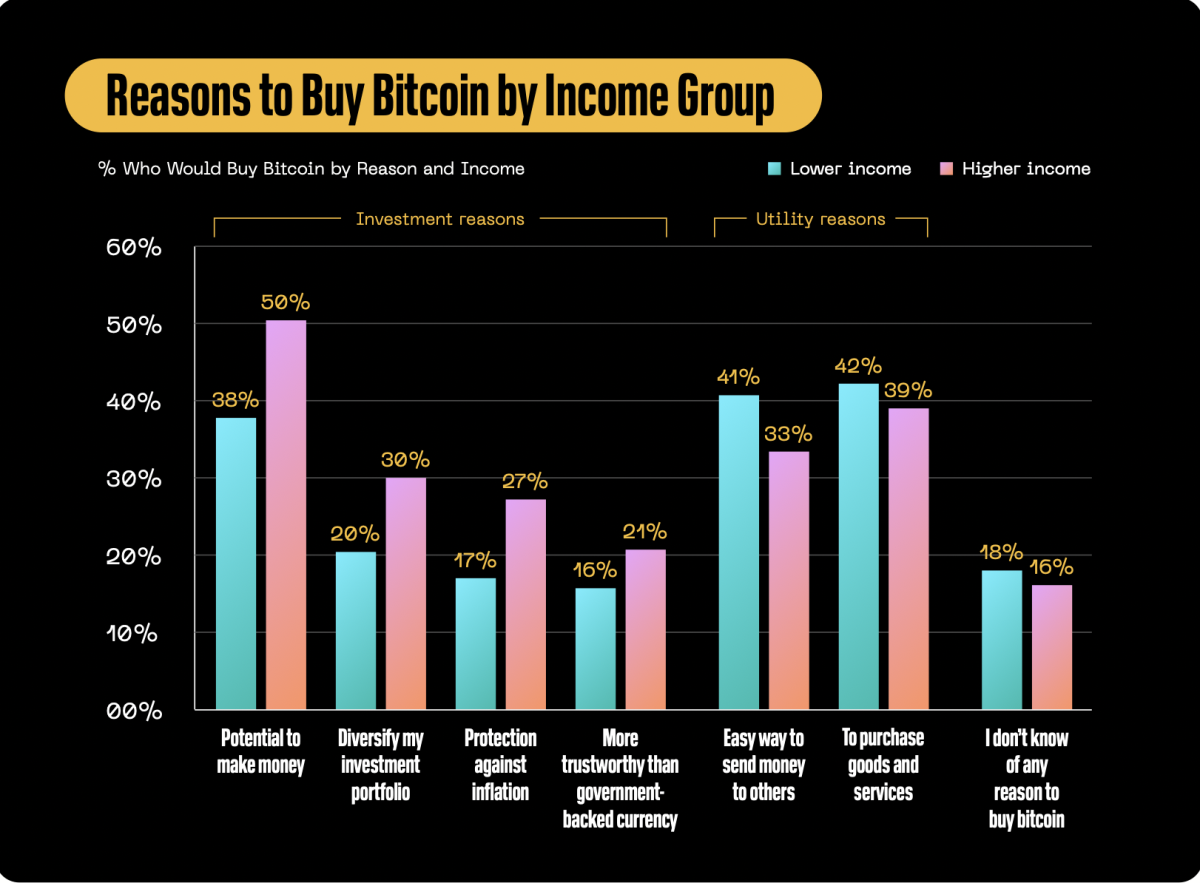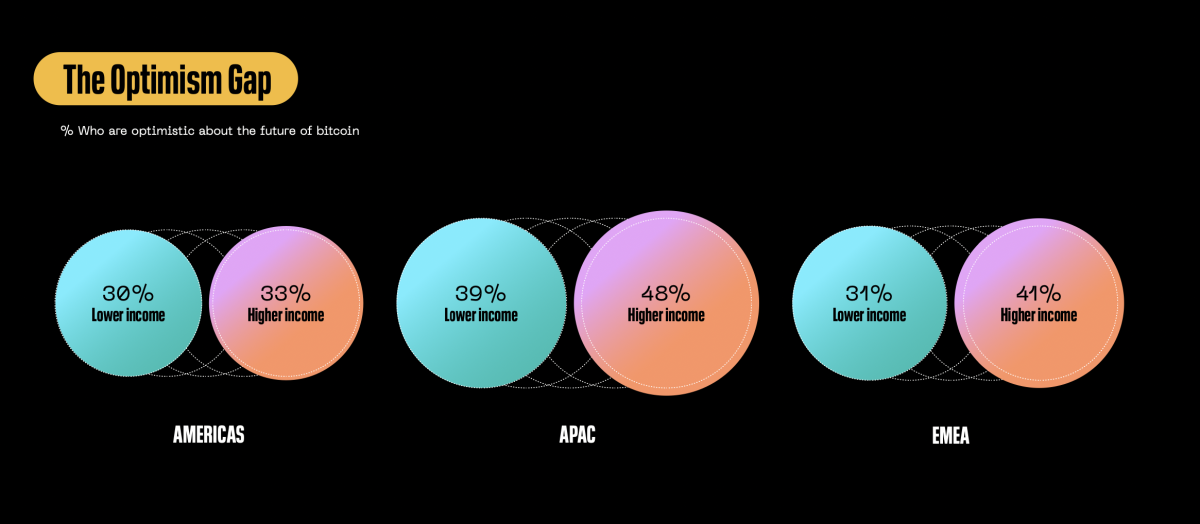
In partnership with Wakefield Research, Block Inc released a survey of 9,500 respondents discussing misconceptions surrounding bitcoin.
In partnership with Wakefield Research, Block Inc released a survey of 9,500 respondents discussing misconceptions surrounding bitcoin.
- Block partnered with Wakefield Research to address misconceptions surrounding Bitcoin.
- The survey included 9,500 respondents from varying age groups, genders and ethnicities from around the world.
- The data reveals something telling about the knowledge gaps in Bitcoin and what strengthens the network effect.
Block, a Bitcoin-oriented financial services firm previously known as Square, just released Bitcoin: Knowledge and Perception[2], a report detailing a survey of 9,500 participants conducted in partnership with Wakefield Research to address common misconceptions about Bitcoin.
One immediately noticeable trend uncovered in the survey addresses a simple question. Why should someone buy bitcoin?
One of the most common conceptions involving bitcoin is people just want to invest in it to make money. Block’s report states:
“People with below-average income more frequently note using bitcoin as a way to send money and buy goods and services than people with above-average incomes,” as noted in the graph below.

Block Inc[3]
The survey also found that knowledge of cryptocurrency largely dictates whether or not investors are interested in purchasing bitcoin. Over 40% of respondents who claimed a “fair to expert knowledge” level in the space noted they would likely purchase bitcoin within the next year showing a large amount of optimism.




